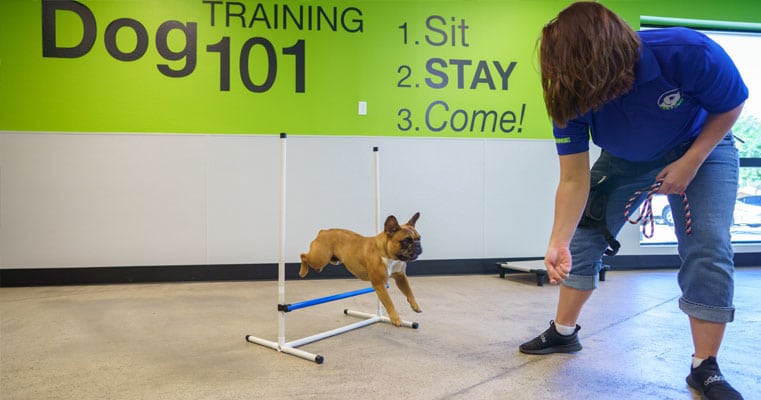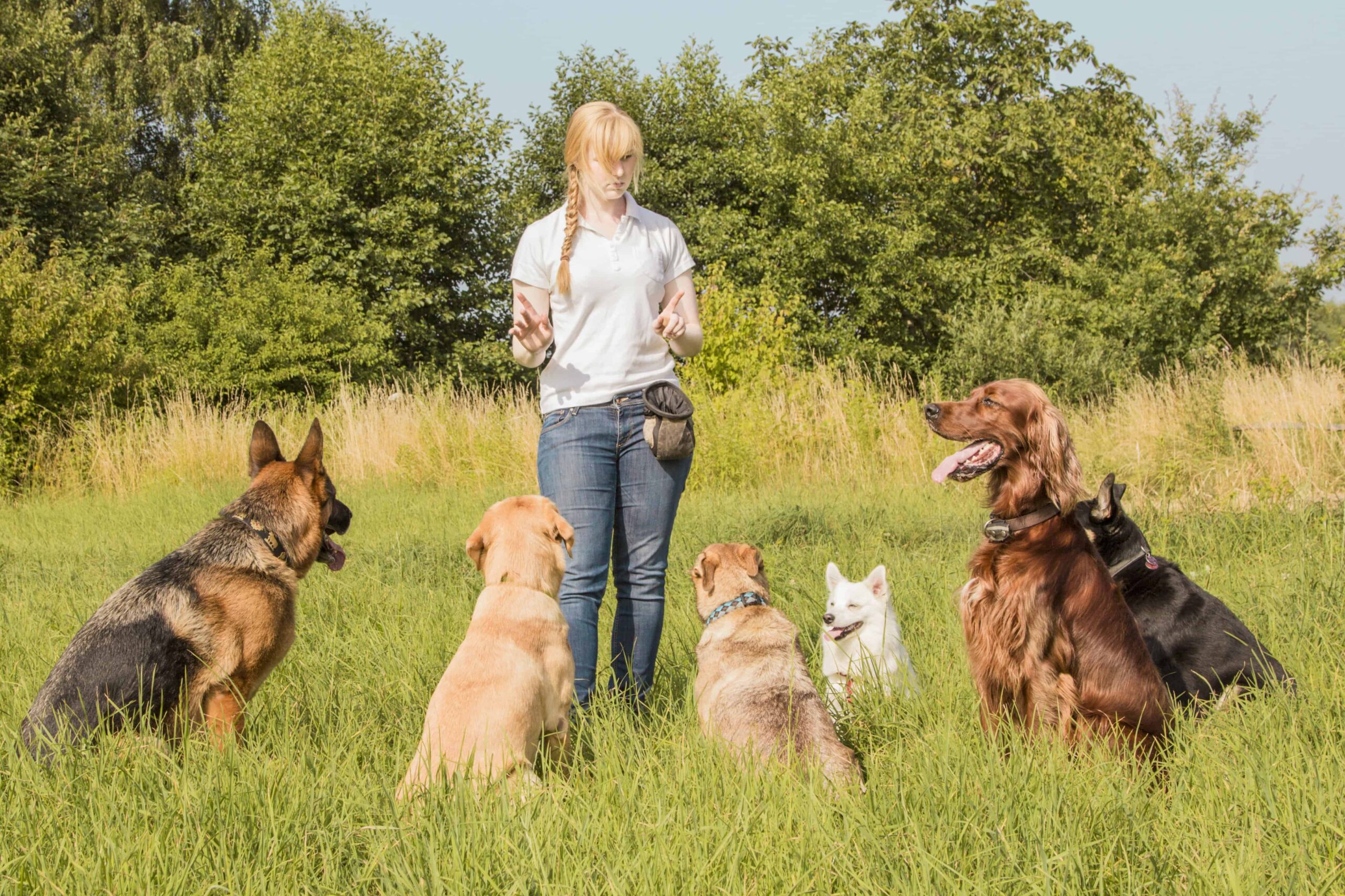The Ultimate Guide to Dog Training Charlotte: Strategies for Success
The Ultimate Guide to Dog Training Charlotte: Strategies for Success
Blog Article
Unlock Your Dog's Possible: Proven Pet Training Strategies for Success
Effective pet dog training is a nuanced procedure that depends upon comprehending canine behavior and utilizing clinically backed methods. dog training charlotte nc. By integrating positive reinforcement, establishing clear commands, and prioritizing socialization, dog owners can cultivate an efficient partnership with their pets. Difficulties often emerge that call for customized remedies and a patient method. Checking out these verified techniques exposes not just the capacity for behavioral improvement yet additionally the deeper bond that can be developed between proprietor and canine. What vital methods must be thought about to absolutely open your pet's potential?
Understanding Canine Habits
Recognizing pet dog actions is crucial for effective training and fostering a positive relationship between pets and their proprietors. A detailed understanding of canine body language, articulations, and social communications is essential for recognizing their emotions and demands. Pet dogs communicate mostly through non-verbal hints; as an example, a wagging tail might show excitement, while pinned ears can indicate concern or submission.
In addition, environmental aspects play a considerable role in shaping a dog's habits. Changes in regular, new environments, or the visibility of unfamiliar people can bring about stress or anxiousness in dogs. Acknowledging these triggers makes it possible for owners to mitigate adverse responses and establish appropriate training strategies.
Eventually, a deep understanding of canine behavior lays the structure for successful training methods, boosting both habits and the total bond in between the dog and its owner. dog training charlotte. This expertise is important for fostering a well-adjusted, happy canine companion
Positive Support Techniques
Efficient training depends heavily on favorable support techniques, which have actually been revealed to yield considerable cause forming desired habits in pets. This approach includes compensating a dog for exhibiting certain actions, thus boosting the possibility that these behaviors will be repeated. Rewards can take numerous forms, including deals with, praise, playthings, or playtime, relying on what inspires the private canine.

It is vital to slowly phase out incentives as the canine finds out the actions, transitioning to recurring reinforcement. This technique preserves the behavior with time while protecting against dependency on constant rewards. By focusing on positive support, trainers can cultivate a trusting relationship with their pets, advertising a participating and healthy and balanced training environment that improves general obedience and performance.
Establishing Regular Commands
An essential facet of successful canine training is the facility of regular commands. Consistency in commands is vital for effective interaction in between the instructor and the pet. When page commands are consistent, pet dogs learn to link specific words with preferred actions, which accelerates the training procedure and improves understanding.
To develop consistent commands, it is necessary that all relative use the same terms and gestures. For instance, if a single person uses "rest" while one more claims "rest down," it can develop complication for the dog. Select clear, unique words for commands and guarantee everybody associated with the pet dog's training adheres to these selections.
Additionally, repetition is vital. Strengthen commands via constant practice, making certain that the dog receives sufficient possibilities to react appropriately. When a dog successfully complies with a command, instant positive support must follow. This can be in the form of treats, appreciation, or play, solidifying the connection between the command and the action.
Lastly, hold your horses. Developing regular commands takes some time and initiative. With devotion and quality, you will certainly assist your canine establish a solid understanding of assumptions, inevitably bring about a mannerly buddy.
Socializing and Direct Exposure
Interacting socially a pet is crucial for fostering a well-adjusted and certain buddy. This procedure includes revealing your pet to a variety of environments, individuals, and various other animals to establish their social abilities and flexibility. Early socializing, ideally in between the ages of three to fourteen weeks, is important, as it lays the foundation for a dog's future habits.
Throughout socialization, goal to offer favorable experiences in various settings, such as parks, active streets, and homes with other pet dogs. Present your dog to numerous stimuli, consisting of audios, views, and scents, guaranteeing that each encounter is satisfying. This direct exposure aids alleviate fear and stress and anxiety, leading the method for an extra resilient pet.
Engaging in regulated team play sessions with other dogs can additionally enhance social abilities, teaching your animal Recommended Reading suitable interactions and limits. Focusing on socializing will dramatically add to your dog's general joy and actions throughout their life.
Conquering Common Educating Difficulties

One more constant concern is diversion. Pet dogs might struggle to concentrate in unknown or busy settings. Progressively desensitize your dog to interruptions by starting training in a silent environment and gradually presenting more stimulations as they come to be skillful (dog training near me). Positive support techniques, such as treats and appreciation, can maintain inspiration and emphasis.
Additionally, behavioral concerns like jumping or too much barking can become frustrating. Address these by educating different habits, such as sitting comfortably when welcoming guests. Uniformity and persistence are critical; reinforce preferred habits continually and prevent abuse, which can lead to complication.
Finally, recognize that each canine is one-of-a-kind, and training timelines might vary. Dressmaker your strategy to your dog's specific requirements, and look for expert assistance if necessary. With perseverance and the best methods, getting over these obstacles can bring about a trained, delighted canine friend.
Conclusion
Finally, opening a pet's prospective requires a detailed strategy that integrates an understanding of canine habits, the application of favorable reinforcement techniques, and the facility of regular commands. Early socialization and direct exposure to diverse settings better enhance a canine's adaptability and confidence. By attending to typical training obstacles with tailored methods and patience, a harmonious and cooperative relationship between canine and handler can be cultivated, eventually resulting in a mannerly companion qualified of thriving in different circumstances.
Effective dog training is a nuanced procedure that hinges on comprehending canine habits and utilizing clinically get my dog certified as a service dog backed strategies.Comprehending pet dog behavior is important for effective training and cultivating a favorable connection in between pets and their proprietors.Efficient training depends heavily on positive reinforcement strategies, which have been revealed to yield significant results in shaping wanted habits in pets. When commands are uniform, dogs learn to associate certain words with preferred behaviors, which increases the training process and improves understanding.
In verdict, opening a canine's prospective necessitates a detailed technique that incorporates an understanding of canine habits, the application of favorable reinforcement strategies, and the facility of constant commands.
Report this page